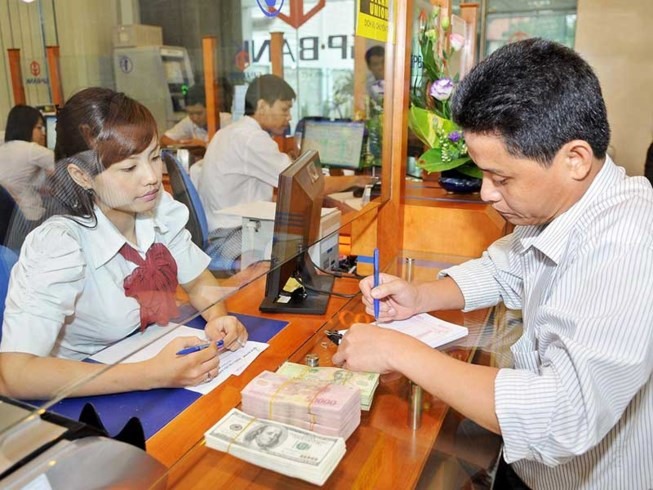 Economy
Economy

Exporters will no longer be allowed to borrow bank loans in foreign currencies beginning next year, if the State Bank of Việt Nam (SBV) does not extend a circular regulating the loans.
 |
| Exporters will no longer be allowed to borrow bank loans in foreign currencies beginning next year, if the State Bank of Việt Nam (SBV) does not extend a circular regulating the loans.— Photo plo.vn |
HÀ NỘI — Exporters will no longer be allowed to borrow bank loans in foreign currencies beginning next year, if the State Bank of Việt Nam (SBV) does not extend a circular regulating the loans.
Under Circular 31/2016/TT-NHNN dated November 17, 2016, which will remain in effect until December 31 this year, commercial banks can provide short-term loans in foreign currencies for export firms which need funds for production and have turnovers in foreign currencies. After receiving such loans, exporters must immediately sell the amount of foreign currency borrowed to the lending institutions, under the spot forex trading method, except in cases when the foreign currency will be used to make payments.
Thanks to this policy, exporters have an opportunity to borrow foreign currencies at low interest rates. Currently, lending interest rates for short-term US dollar loans are roughly 2.5-4 per cent, while the rate for short-term đồng loans is some 7-9 per cent.
The policy is aimed to support local exporters to increase their competitiveness and boost exports, in the context that their businesses and production still face difficulties. This is also among the Government’s incentive policies aimed to support and develop local enterprises until 2020, which was approved in Decree 35/NQ-CP issued in May 2016.
Previously, the policy had been extended several times to support local exporters.
While exporters are still waiting for movement from the SBV, SBV deputy governor Đào Minh Tú has recently said that the central bank has many times wanted to stop the policy, but has instead extended it to support local firms.
He admitted that though some exporters should be given priority so they might take advantage of the policy, others whose turnover in foreign currencies is very modest, should not be still enjoying it, as this has proven to be unfair.
In the short run, SBV, therefore, might stop the issuance of foreign currency loans for some unqualified firms, Tú revealed, adding that, in the long run, the policy will end for all firms, and all firms must gradually shift from borrowing to buying and selling foreign currencies.
However, in contrast to Tú’s opinion, the general director of a commercial bank, who declined to be named, was concerned that unqualified firms will try to use this loophole to take advantage of the policy. Therefore, the target of ensuring business fairness, as desired by the central bank, would be impossible to achieve, he said.
Huỳnh Nhất Trung, director of an agricultural product export company in the central province of Bình Thuận, said that local exporters still have to significantly depend on bank loans, in which the interest rate in đồng is twice or even triple that of foreign currency, meaning it will be difficult to reduce interest costs without this policy. This will result in Vietnamese goods being unlikely to compete with rivals in the region, he said.
Meanwhile, financial and banking expert Nguyễn Trí Hiếu proposed that the central bank extend the policy for an additional one year to avoid the country’s exports operating at a disadvantage. He believes that the extension will not impact on the Government’s anti-dollarisation policy, as the nation’s foreign exchange is relatively stable. Besides, the banks’ disbursement of foreign currency loans is in đồng, not the greenback.
To avoid unqualified firms from taking advantage of the policy, Hiếu suggested that the central bank could fine-tune the regulation. For example, only firms with at least 50 per cent of turnover in foreign currency be allowed to seek foreign currency loans.
Echoing Hiếu, expert Cấn Văn Lực proposed that to make the final decision on whether to extend the policy, the central bank should conduct a survey among credit institutions and the business community about the loans.
The Government should pursue the anti-dollarisation policy, but should not do it at all costs, Lực said, adding that it should fight against the dollarisation but, at the same time, should still create favourable conditions to support firms, especially exporters. — VNS




